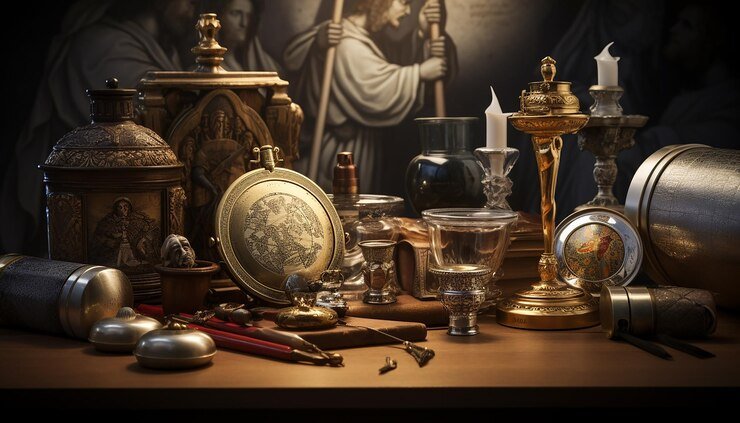Step into the realm of time as we unravel one of history’s most fascinating questions: how long is a century? From ancient civilizations to modern-day societies, centuries have held a profound significance in shaping our world. But what exactly defines a century? Is it merely a measurement of 100 years, or does it hold deeper meaning? Join us on this captivating journey as we delve into the historical context, various units of measurement, and even uncover some thought-provoking facts about centuries. Brace yourself for an enlightening exploration that will leave you with a newfound appreciation for the passage of time!
Table of Contents
Defining a Century
Centuries have long been used as a way to measure time, but what exactly constitutes a century? In its simplest form, a century is defined as 100 years. It serves as a significant milestone in history, allowing us to reflect on the past and project into the future. However, there is more to it than just counting the years.
Beyond the numerical aspect, centuries hold immense cultural and societal significance. They mark distinct periods of human development and progress. Think about it – each century brings forth new ideas, innovations, and transformations that shape our world. From scientific breakthroughs to artistic movements, centuries serve as markers for understanding how societies evolve over time.
Interestingly enough, the concept of measuring time in centuries can be traced back thousands of years ago! Ancient civilizations such as the Egyptians and Babylonians recognized the importance of organizing their historical records into meaningful chunks of time.
So while we may often think of centuries solely in terms of numbers or dates on a calendar, they are much more profound than that. They provide us with an opportunity to reflect on our collective accomplishments and learn from our mistakes throughout history.
As we navigate through this article exploring different aspects of centuries – from units of measurement to intriguing facts – keep in mind that these 100-year increments encapsulate far more than mere digits on paper. A century represents growth, change, triumphs,and lessons learned – all woven intricately together within the fabric of time itself. Stay tuned for further insights into this captivating subject!
Historical Significance of Centuries
The historical significance of centuries cannot be underestimated. Throughout human history, centuries have marked major milestones and turning points in civilizations around the world.
From the rise and fall of great empires to groundbreaking scientific discoveries, centuries have witnessed dramatic shifts in power, culture, and technology. They serve as a framework for understanding the progression of time and provide valuable context for studying past events.
Centuries also highlight the enduring legacy of influential individuals who shaped our world. Think about figures like Leonardo da Vinci or Martin Luther King Jr., whose impact continues to resonate long after their lifetimes.
Moreover, centuries often mark significant anniversaries that are widely celebrated or commemorated by communities globally. These important milestones allow us to reflect on our collective achievements, learn from past mistakes, and envision a better future.
Centuries hold immense historical significance as they encapsulate key moments in human history, showcase the remarkable contributions of individuals and cultures alike, and provide an opportunity for reflection and growth. So next time you think about how long is a century, remember its profound impact on shaping our world!
Different Units of Measurement for Centuries
When it comes to measuring time, centuries are a fascinating unit. While the most common understanding is that a century consists of 100 years, there are other units of measurement associated with this significant period.
In terms of months, a century encompasses approximately 1,200 months. This may seem like an overwhelming number, but it highlights just how extensive and impactful a century can be in shaping history.
Looking at weeks, a century spans over 5,200 weeks. That’s more than five thousand periods encompassing seven days each! It truly emphasizes the long-lasting impact that centuries have on our lives.
Breaking it down further into days reveals that there are around 36,500 days in a single century. Each day presents opportunities for growth and change as we navigate through life within the context of these vast time frames.
If we delve even deeper into hours, we find that there are approximately 876,000 hours in one hundred years. This realization showcases the magnitude of possibilities and achievements contained within such an extended period.
It’s worth noting that these measurements provide different perspectives on what constitutes a century beyond simply counting years. They remind us that centuries hold incredible significance not only because they mark the passage of time but also because they encapsulate countless moments filled with triumphs and challenges alike.
As we explore various ways to measure centuries beyond their traditional definition as one hundred years, it becomes evident why they hold such historical importance and intrigue across different cultures and societies worldwide.
How Long is a Century in Years, Months, Weeks, Days, and Hours?
In terms of years, a century consists of 100 calendar years. It starts with the year ending in “01” (e.g., 1901) and ends with the year ending in “00” (e.g., 2000). It represents a significant period of time that encompasses numerous historical events and societal changes.
When it comes to months, there are approximately 1,200 months in a century. Each year contains twelve months on average. This means that within this span of time, we experience the changing seasons twelve hundred times!
Moving on to weeks, there are around 5,217 weeks in a century. With each year containing an average of fifty-two weeks, multiplied by one hundred years – that’s quite a lot!
Now let’s zoom even further into days. A century comprises approximately 36,525 days. That’s thirty-six thousand five hundred twenty-five sunrises and sunsets! Imagine all the experiences and moments lived throughout these countless days.
If we break it down to hours—brace yourself—there are roughly 876,600 hours in a century! So much can happen within those ticking seconds.
As you can see from these measurements at different scales of time—from years to hours—a century holds immense significance and provides ample opportunity for growth and change across generations!
Why Some People Think a Century Is More Than 100 Years
It may come as a surprise, but there are actually some people who believe that a century is more than just 100 years. While the standard definition of a century is indeed one hundred years, there are various reasons why individuals might perceive it differently.
One reason for this misconception could be the way we count time. For instance, some cultures have different calendar systems or consider different time periods as significant milestones. In these cases, their concept of a century may not align with the traditional understanding.
Another factor contributing to this belief is likely personal experience and perspective. If someone has witnessed numerous changes and advancements within their lifetime, they might argue that the pace of progress makes each era feel longer than what can be encompassed in just 100 years.
Additionally, historical events can also influence how people perceive centuries. Major shifts in social, political, or technological landscapes can create distinct eras that feel longer due to the profound impact they have on society’s collective memory.
Ultimately though, while these arguments provide interesting perspectives on the perception of time and its relation to centuries, it’s worth noting that academically and historically speaking, a century remains firmly defined as precisely 100 years.
Interesting Facts About Centuries
Centuries have witnessed countless historical events and shaped the course of humanity. Here are some fascinating facts about centuries that will pique your curiosity:
1. Leap Year Discrepancy: Did you know that not all years ending in “00” are considered leap years? While most centennial years, like 2000 and 2400, are leap years, those divisible by 400, such as 1700 and 1900, are not. This adjustment ensures our calendar remains accurate over time.
2. The Longest Century: The longest century in history was the twentieth century – spanning from January 1st, 1901 to December 31st, 2000. It witnessed two world wars, remarkable technological advancements like space exploration and computers, and significant social changes.
3. Centuries Within a Millennium: A millennium comprises ten centuries but begins with a year ending in “001” rather than “000.” For example, the current millennium began on January 1st, 2001.
4. Centuries and Pop Culture: Popular culture often references specific centuries or uses them as settings for movies or literature. From Jane Austen’s Regency-era novels set in the early nineteenth century to epic films depicting medieval times like Braveheart or Kingdom of Heaven – centuries hold immense storytelling potential.
5. Historical Turning Points: Many pivotal moments occurred within certain centuries that forever altered human civilization – such as the Renaissance during the fifteenth century or the Industrial Revolution throughout the eighteenth and nineteenth centuries.
6. Centennial Celebrations: Significant anniversaries marking one hundred years often call for grand celebrations worldwide! Whether it’s commemorating independence movements or honoring iconic figures’ births or deaths – centennials offer opportunities for reflection on past achievements.
7. Longevity Records: While individuals typically don’t live beyond a single century (100 years), there have been exceptional cases of supercentenarians who surpassed this milestone. The oldest recorded person lived 122 years and 164 days!
Conclusion
How Long is a Century, we have explored the question of how long a century is. We have defined a century as a period of 100 years and discussed its historical significance in various contexts. We also delved into different units of measurement for centuries, including years, months, weeks, days, and hours.
While it may seem straightforward that a century equals 100 years, there are some individuals who believe otherwise. They argue that due to calendar adjustments and leap year considerations over time, a century should actually be slightly longer than 100 years.
Regardless of these differing viewpoints, centuries hold immense importance in understanding our past and shaping our future. They serve as markers for significant periods in history and allow us to reflect on the progress made by humanity throughout the ages.
As we wrap up this exploration into the length of a century, it’s fascinating to consider that civilizations rise and fall within this span of time. It’s an opportunity for introspection about what we can achieve individually and collectively in the course of a hundred years.
So next time you come across the term “century,” remember its true definition – 100 remarkable years packed with growth, change, triumphs, challenges – all contributing to the tapestry of human existence.





